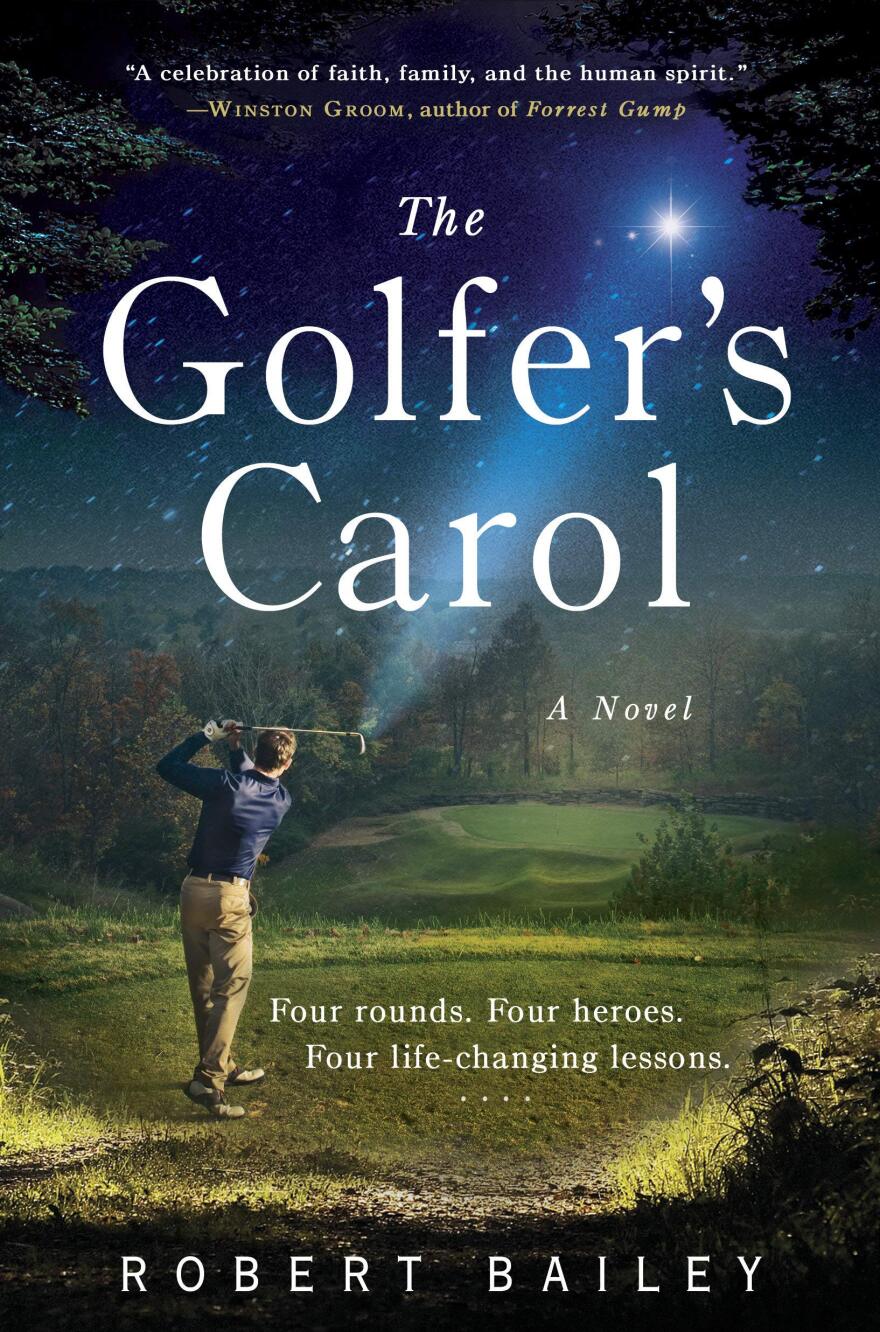“The Golfer’s Carol: A Novel”
Author: Robert Bailey
Publisher: G. P. Putnam’s Sons
Pages: 226
Price: $24.00 (Hardcover)
Despairing Father Visited by Ghosts of Golfers Past in Moving Novel
The title of this novel, released just before Christmas, leads the reader in the direction of Charles Dickens’s classic—the full title of which is “A Christmas Carol, In Prose. Being a Ghost Story of Christmas.”
In the Dickens story, Ebenezer Scrooge is visited on Christmas eve by the ghost of his partner Jacob Marley, then by the ghosts of Christmas past, present and future. Scrooge is transformed by the experience and becomes a happy, generous man.
Bailey’s hero, Randy Clark, is an attorney and avid golfer in Huntsville, Ala. Sixteen years earlier, he had failed to qualify for the Tour, by one stroke. His father had advised him: “There comes a time in every man’s life when he realizes he’s not going to be Joe Namath.”
Clark went to law school.
Clark is not old and rich and stingy. With a wonderful wife and teenage daughter he loves, he is about to have his 40th birthday.
But Clark is in despair. His five-year-old boy, Graham, had died of leukemia three years earlier and Clark is unable to recover.
We learn Clark works for a firm that defends insurance companies, not for the potentially hugely profitable plaintiff’s law firms one sees endlessly advertising on television. He is a quarter of a million in debt from Graham’s medical expenses and decides, really decides, to kill himself by jumping from the Tennessee River Bridge.
He will end what he sees as a not very wonderful life. His family will collect his insurance.
We have to assume that the author Robert Bailey is no relation to George Bailey, unhappy banker.
Enter ghosts.
His best buddy, Darby Hays, who DID make it to the PGA Tour has died in a car crash and visits Bailey.
In a dream? Maybe.
Hays tells Bailey he will have four more ghostly visits and amazingly each will include a round of golf with a dead links legend—Bobby Jones, Arnold Palmer, Ben Hogan and a surprise partner.
On these rounds, these successful men give Clark some valuable advice. One must learn control, not to destroy oneself through unbridled emotions. One can surmount huge pain and disappointment. One should believe in oneself, and take a chance for greater success,
The rules for successful living are, it seems, the same as for successful golf.
There is, as you might imagine, a LOT of golf played. Bailey puts these rounds on famous courses including St. Andrew’s and Augusta. The fairways and greens are described in detail. There are irons and woods, tee boxes and doglegs, traps and roughs, even sucker holes.
I have no interest in golf at all and I still found it engaging. Golfers will eat it like candy. YES, it is a possible Christmas present. It’s meant to be!
Since this is suicide story told in the first person, it should be no spoiler that Clark learns and heals.
A Christmas story should not end in self-slaughter!
In the early pages, I thought I was going to put this novel in the same category as Mitch Albom’s “Five People You Meet in Heaven,” irritatingly sentimental, disappointing after his excellent “Tuesdays with Morrie.”
But Bailey has not gone over the line—that is, MY line.
The lessons Clark learns are solid. His move back from suicidal despair is convincing and I was, in fact, moved by the story and cheered as he returned to his wife and daughter and what was going to be—dare I say it—a wonderful life.
Don Noble’s newest book is Alabama Noir, a collection of original stories by Winston Groom, Ace Atkins, Carolyn Haines, Brad Watson, and eleven other Alabama authors.





